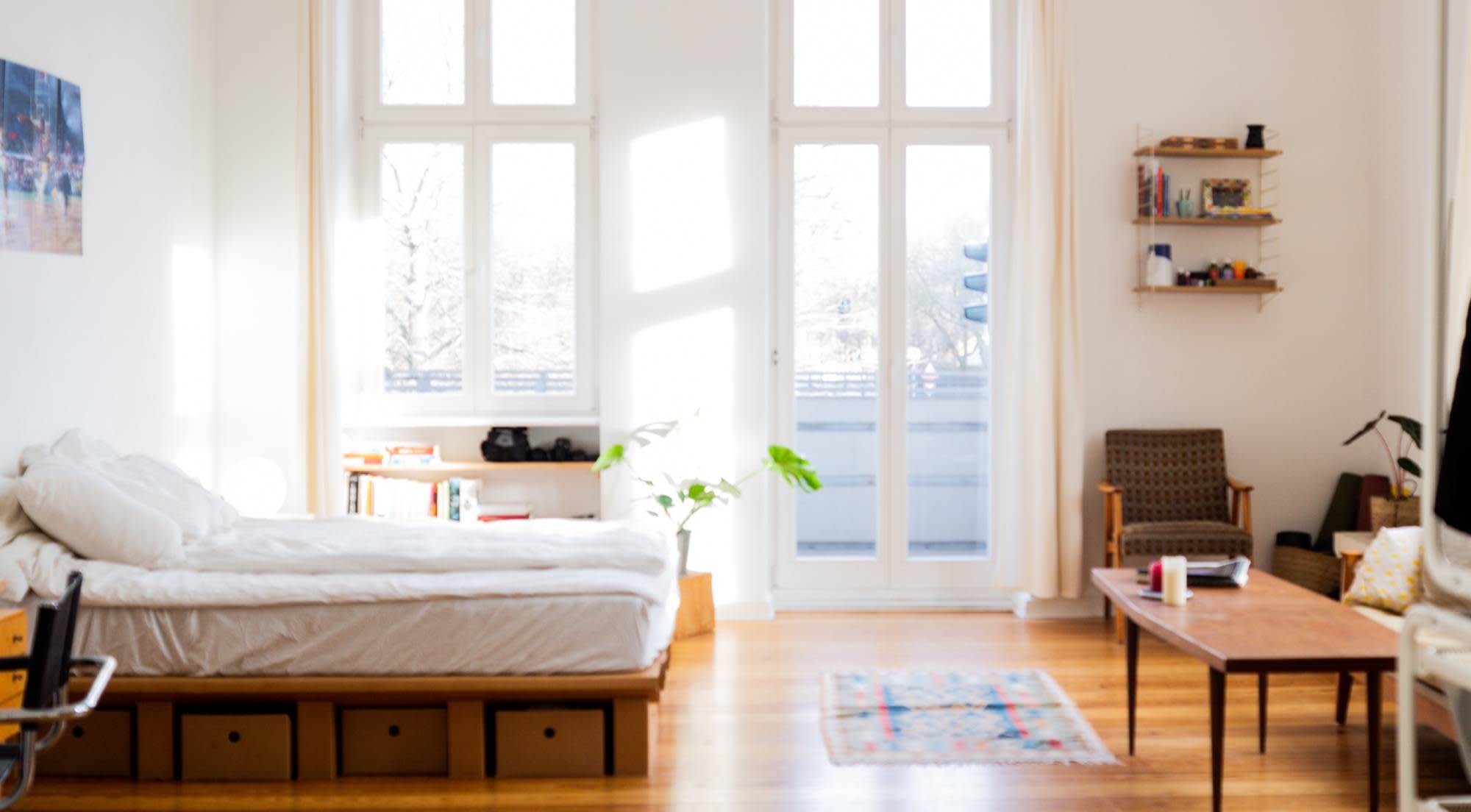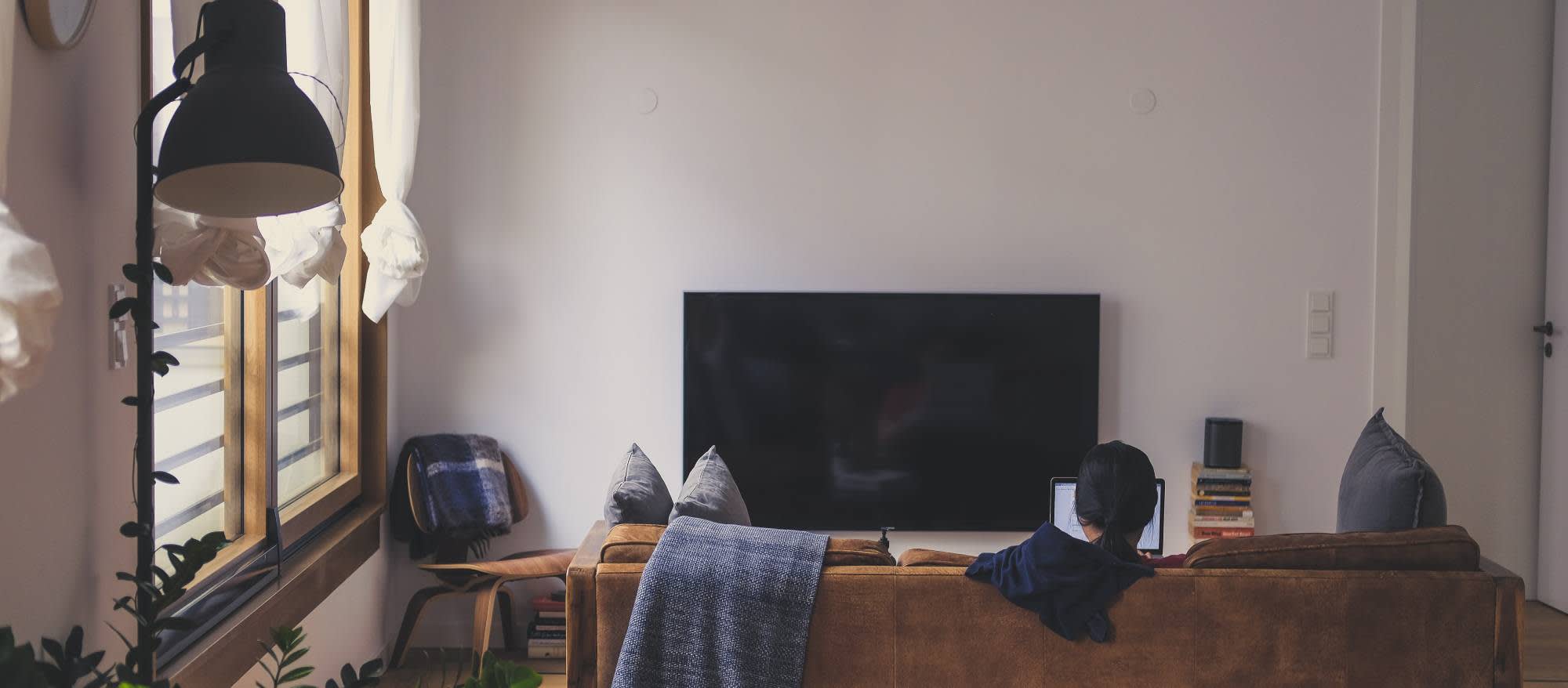Renting in Germany: How to find and secure your accommodation
Bas
Updated on May 18 • 9 minute readDifferent countries, different customs. But finding a new home always takes time. When renting in Germany, you'll probably run into peculiarities you aren’t used to back home. Things can be even more confusing if that’s your first time house hunting.
But worry not! We’ll take you by the hand so that you understand how to find your dream house in Germany in no time.
In this article, you’ll learn about:
- different types of housing in Germany,
- tips on finding accommodation in Germany,
- subletting in Germany,
- next steps after you've found your new home
- and German rental terms you need to know.
So that you can tick this off your moving checklist.
Types of housing in Germany
First, let’s take a look at what you can expect when moving to Germany. Whether you’re going to Germany to study or kickstart your career, there are different types of accommodation in the German market for you to consider.
Accommodation for students
Moving to Germany for a semester, an exchange program or even for your entire course is becoming increasingly popular. Especially, since Germany is doing its best to become one of the top educational destinations in Europe.
Rooms (Zimmer) and studios are the most popular among students, alongside sharing an apartment. This shared living (referred to as Wohngemeinschaft, or WG) often consists of roommates who don’t necessarily know each other.
Another note is that subletting is also quite common. For example, someone rents an apartment from a landlord, only to sublet one or more rooms to another tenant. So you might just end up living alongside your de-facto landlord.
These arrangements can be pretty informal, which makes them great for shorter-term stays. If you’re looking to stay for any length of time though, make sure you get a proper rental arrangement on paper. But we’ll get into that in more detail later.

“Together with two Italian expats, we explore the highs and lows of house hunting in this notoriously challenging housing market:
”
Accommodation for young professionals
Starting or continuing your career abroad is super exciting! But you need to consider a living situation that fits to your busy lifestyle.
While having an entire apartment to yourself might be a bit too pricey in the competitive markets of the larger German cities like Berlin or Munich, a studio apartment might offer you the right balance between space and privacy.
A solid middle ground, especially if you’re tired of having to share your bathroom and kitchen with people who aren't as tidy as you are!
However, if you’re a social butterfly, sharing an apartment with some other expats and Germans of your generation might be exactly what you need to kickstart your social circle in Germany.

Accomodation for expats
As a seasoned expat, this probably isn’t your first time moving abroad. You’re making moves in your career and you’re bringing your partner or even your family along for your new life in Germany. You’re looking for something a little more spacious and permanent, so renting an apartment with a couple of bedrooms in Germany is probably the way to go for you.
Depending on the length of your stay, you might want to make your place your own.
No worries there, as most of the apartments on the German market, are in an unfurnished state. So, you’re free to decorate your house to your own taste, down to the curtains and the kitchen appliances. That said, there’s also a wide variety of fully furnished options available that are tailored to expats and their families during their year(s) abroad.

How do I find rental accommodation in Germany?
Now that you know what to look for, you can start focusing on the fun part! Finding housing can be a great adventure. You just have to know where to look and the best way to search.
Choose your destination
Finding the right destination city might be a great place to start. Each one of the large German cities has its own housing market and varies in terms of safety, cost of living and international scene. Want to know more? You’re welcome to read our article about the best places to live in Germany for expats.
Find a reliable housing platform
Now that you know where you want to live, you’ll want to sign up with a trusted housing platform. You have the option of using a real estate agency or expat housing service, but they can be very expensive, and the fees are often not listed upfront.
You might also feel like setting out on your own to look for an apartment. Social media like Facebook do have many groups and communities where you can look for listings. However, remember that the housing markets in bigger cities are extremely competitive. Often, a listing can rent out within hours, so you have to stay ahead of the game.
“Keep in mind that because of the extremely competitive rental market, there are a lot of scammers on Facebook.
”
At HousingAnywhere, we have scam-detection technology built upon machine learning. It prevents scam listings from appearing on the website in the first place.
Furthermore, we keep your money safe until 48 hours after you've moved in, to give you the chance to scope out the place. In case the place doesn’t match what was advertised (such as a single, instead of a double bed), we'll give you your money back and help you find another place.
Facebook simply doesn't offer this level of security. In addition to this, HousingAnywhere makes your search easier by notifying you when a new suitable property is listed. So you can immediately jump on it! And by jumping on it, we mean you can talk directly to the property owner.
On top of that, you’ll have a German address and an invoice for your payment in advance. Perfect if you’re applying for a visa!
Pay attention to additional costs
When considering a rental price, make sure to take into account whether the amount implies warm rent (warmmiete) or basic rent (kaltmiete). Warm rent includes service charges and utility costs on top of the basic rent.
If your landlord charges you for any of these costs, they must also provide you with a cost breakdown at the end of the year.

Is subletting legal in Germany?
Yes, subletting is legal in Germany. That means you could always get yourself a roommate and save yourself some money by splitting the rent at the same time!
However, to sublet your apartment, you need to first obtain a permit from your landlord or property manager.
Can the landlord refuse my request to sublet?
Your landlord is obliged to agree to the sublet if you have a “legitimate interest” in subletting. That can be of personal or economic cause such as:
- change in your income situation so you’re not able to pay full rent (e.g. losing a job or getting divorced)
- your current roommate is moving out
- your siblings need a housing
- you need a subtenant for a child or medical care
As an expat you might need to move abroad for a while. In that case, you can rent out your entire apartment to avoid paying double rent. The landlord, therefore, is obliged to give their permission if you aren’t giving up on your apartment completely (e.g. keeping your furniture and keys).
However, your request to sublet can be refused if:
- the potential subtenant might wreak havoc in the domestic peace or the apartment
- it causes overcrowding in the apartment
- the landlord had problems with the potential subtenant in the past
- you want to sublet the apartment for tourist purposes
Do I need a sublease contract?
Even though you’re not legally obliged to sign a contract with the subtenant, we advise you to put your subleasing agreement in writing.
The same goes for subrenting a room. Make sure you sign a contract that clearly states the period of the lease, rent cost with any additional charges, house rules, shared spaces and the required deposit amount. That way you prevent yourself from unfortunate scenarios like ending up on the street or losing your deposit.

Preparation: documents needed to rent in Germany
When renting an apartment in Germany, there are several documents that you need to have at the ready. Not all landlords will require every document, but making sure you’re prepared will save you much time and headspace.
You might be asked to send your:
- rental application form or rental application letter, usually handed out at the viewing, containing all your basic contact information and/or a bit about yourself.
- copies of a valid Passport or ID card
- copy of your residence permit (if you require one).
- proof of income (Einkommensnachweis), which could be bank statements and payslips showing your salary, your German employment contract, proof of scholarship or any other document that proves you can afford your tenancy.
- document provided by your previous landlord (Mietschuldenfreiheitsbescheinigung), indicating you have no outstanding rental payments. ;
- credit check (SCHUFA)
“When trying to rent through conventional channels, expats can get stuck in a circular catch-22 situation due to the SCHUFA report.
”
To get a lease or open an account at a local bank, you need a SCHUFA credit report, but to get a SCHUFA report, you need a German address. But you can’t get a German address because you don't have a SCHUFA report ... See the problem? Thankfully, landlords on HousingAnywhere know this and will accept an alternative proof of income and/or financial health instead.
As the rental market is quite competitive, make sure you have these documents ready to send by email. This way you can cement your interest with the landlord or real estate agent (makler) right after your (virtual) viewing, by sending all the necessary documents right away.
Signing a contract
Before you sign a contract, make sure you familiarise yourself with the German rental law. Sure, legal language is pretty complicated. But spending a few hours on a deep dive into your tenant rights might save you a headache later.
Next steps

Register with your municipality
Once you sign your rental agreement, you’ll be required to register your new address with the Bürgeramt (registration office) within 2 weeks after you move.
This step is compulsory for everyone who intends to stay in Germany longer than 3 months.
When going to the registration office, make sure you have your:
- filled registration form (Meldeschein or Anmeldung; you can download it on the registration office’s website)
- identity card or passport
- rental agreement signed by your landlord
Open a German bank account
This step is only possible after registering your residence in Germany because you'll need a proof of your address and the SCHUFA credit report.
Setting up a German bank account is especially important for non-EU citizens. You’ll need it to pay the rent to your German landlord, receive your salary, and even get a gym membership.
Sign up for liability insurance
It’s not a requirement but a good practice to sign up for liability insurance. That way you’ll protect yourself from paying for any damages to your flat when you move out.
Think stuff like doors, windows, walls, floors, bathroom appliances and cupboards. It all can get damaged throughout your rental.
Let’s imagine your dog knocked something heavy off the table and damaged your parquet flooring. Normally, during your move out inspection, things like this would be noted and taken off your deposit. That is unless you have liability insurance, of course!
Find an internet provider
Usually, the internet isn’t a given when you rent out an apartment in Germany. So, you’ll need to do your research and arrange a web connection yourself. Head to this article for detailed instructions!

Bonus: understanding German rental terminology
Once you're on the hunt, it will help you to know some of the German words you might run into. So, as a finishing touch before you set off, we provide you with a little German rental vocabulary:
- Who is the Mieter? – Tenant, this would be you!
- Who is the Vermieter? – Landlord, the person who is renting out this space.
- What is a Makler? – Real estate agent, the one who could be the one to meet you for viewings, if the landlord isn’t personally involved.
- What does Wohnfläche mean? – The size of a place in square metres. This includes all the rooms and ¼ of a balcony. Make sure you know what the minimum apartment size for you and/or your family should be.
- What is Kaltmiete? – Basic rent, the monthly rental price excluding any extra costs.
- What is Warmmiete?- Full rent, including additional costs, such as electricity, heating and internet.
- What does Untervermietet mean? – Sublet. This means the place is being sublet, so you’re not renting directly from the actual landlord. Be careful with these arrangements if there is no contract involved, but they might offer a good solution for shorter stays.
- What does Kaution mean? – Deposit, which can range between 1x-3x the Kaltmiete (excluding bills). The deposit is always specified in the rental contract.
- What is an Einkommensnachweis – Proof of income, such as your employment contract and/or bank statements which proves you will be able to afford the cost of living in this home.
- Mietschuldenfreiheitsbescheinigung- A document, usually provided by your previous landlord, that states that you didn’t skip out and have any open rental payments.
- Mietvertrag -The rental agreement. Make sure you always read and understand it all!
- Schlafzimmer – Bedroom. When mentioned in a listing, these are included in the number of rooms.
- Badezimmer – Bathroom. Unless there is more than one, these are not counted in the number of rooms in a listing.
- EBK (Einbauküche) – Fitted Kitchen. Often found in a place that's been recently renovated.
- Renoviert – Renovated. As you might guess, these apartments have recently been given a makeover. It often implies having a brand-new kitchen or bathroom.
Please reach out to content@housinganywhere.com if you have any suggestions or inquiries about the content on this page.


